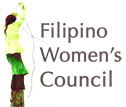Atikha Projects
IFAD Project:
“Mobilizing Migrant Resources Towards Agri-based Cooperatives in the Philippines”
Implementing Agent: Atikha Overseas Workers and Communities Initiative Inc.
Implementation period: 24 Months
Project partners: Soro-soro Ibaba Development Cooperative, LBP Financial Services SpA, Filipino Women’s Council
Total Budget: US$359,000 [FFR grant: US$250,000 & Counterpart: US$109,000 (US$25,000 in cash; US$84,000 in kind)]
Introduction: Despite the huge remittances being received by the Philippines, there is minimal development impact on the source communities of migrants. Agriculture is one of the sector suffering negatively due to migration because farmers family ceased to work when they have migrants abroad. Farmlands are slowly being converted into subdivisions to accommodate the desire of the migrants to build “villas” for their residence. In addition, migration is also slowly breeding a culture of dependency on remittances on the families left behind. These are some of the reasons why migrants are not able to return and reintegrate despite years of hard work abroad.
 To be able to provide the OFWs with investment options and livelihood assistance to their families, and to be able to assist in the development of source migrant communities, Atikha Overseas Workers and Communities Initiatives Inc (Atikha), Sorosoro Ibaba Development Cooperative (SIDC) and Filipino Women’s Council (FWC) Italy forged partnership to be able to mobilize the resources of migrants towards agri-based cooperatives in the Philippines. Atikha is a non-government organization working on maximizing the gains and minimizing the social cost of migration in the Philippines. SIDC is the largest agri-based cooperative in the Philippines and FWC is a migrant organization involved in rights based initiatives for migrants and their families in Italy.
To be able to provide the OFWs with investment options and livelihood assistance to their families, and to be able to assist in the development of source migrant communities, Atikha Overseas Workers and Communities Initiatives Inc (Atikha), Sorosoro Ibaba Development Cooperative (SIDC) and Filipino Women’s Council (FWC) Italy forged partnership to be able to mobilize the resources of migrants towards agri-based cooperatives in the Philippines. Atikha is a non-government organization working on maximizing the gains and minimizing the social cost of migration in the Philippines. SIDC is the largest agri-based cooperative in the Philippines and FWC is a migrant organization involved in rights based initiatives for migrants and their families in Italy.
The team is currently providing financial education to migrants and their families. One of the investments that is being introduced to Filipino migrants is the investment in agri-based cooperatives such as SIDC.
Investment of migrants in SIDC benefits them and their families by providing higher earnings on savings, access to credit with lower interest and business opportunities in agri-based enterprises. It would also help in the agricultural development in the area.
The decision to invest in agricultural cooperative resulted from a meeting between FWC and Atikha. FWC shared the result of the UN INSTRAW, IFAD and FWC study “Gender, Remittances and Development: The Case of Filipino Migration to Italy” to the Philippine Consortium on Migration and Development (PHILCOMDEV) organizations which included Atikha and FWC. The study highlighted the need to support farmer families of migrants through cooperatives providing them with access to credit, market and resources. The farmer families of migrants need cheaper loans and access to market as their earnings are being taken by middle men/loan sharks. The families acknowledge that dependency on remittance can be minimized if they owned the land and other resources required for production.
FWC and Atikha agreed to work together on implementing the recommendation and do environment scanning of existing agri-based cooperatives where this can assist migrants and their families in rural areas. Being the largest agri-based cooperative in the Philippines and having operation in provinces where migrants from Italy originated, SIDC was identified as the best implementing partner to encourage migrant savings and investment and address the problem of dependency of families left behind. Mobilizing members for SIDC among the migrants would enable them to pool their savings and avail of cheap remittance charge.
This project on Mobilizing Migrant Resources Towards Agri-based Cooperative is currently being assisted by the International Fund for Agricultural Development (IFAD).
Target group and area: Filipino migrants in Italy and their families living in the Philippines in the provinces of Batangas, Laguna, Tarlac, Pampanga and Ilocos.
Goal and objectives: The project seeks to:
- Facilitate links between Philippine migrant associations in Italy and their hometowns in the Philippines to support agri-based cooperatives and other productive remittance-based activities and services; and
- To build the capacity of overseas Filipino workers in Italy and their families in pilot provinces in the Philippines to enable them to direct their savings and investment towards the replication of successful agri-based cooperatives in their communities.
Background: The Philippines has about eight million Filipinos overseas of which 58 per cent are considered contract workers. About 60 per cent are women, the majority of which hold vulnerable jobs. The impact on the family left behind is greater when the women are migrating compared to men.
Around 70 per cent of migrants are unable to save for their long-term goals to enable them to return and reintegrate. This due to lack of financial literacy, lack of investment opportunities in rural communities, indebtedness to loan sharks, failed businesses and family issues and values that drain the resources of the family as a result of migration. Migrants are interested in setting up cooperatives and businesses but do not have capacity to do so.
A growing number of Filipino migrants in Italy are heavily indebted to financial institutions in Italy which charge an effective interest rate of up to 24 per cent per annum on loans, as well as Philippine-based financial institutions charging 10 per cent per month interest on loans.
Project activities/outputs: The project envisages to
- Launch a multi-media campaign for migrants in Italy and their families in the target area, including the provision of information on financial literacy and investment in agri-based enterprises, and training of trainers
- Set up the Soro-soro Ibaba Development Cooperative (SDIC) migrant cooperative in Italy with at least 500 members investing in SDIC for agri-based enterprises in the Philippines
- Develop at least four such enterprises and their replication in pilot areas of the Philippines
- Provide training on financial literacy conducted in key Italian cities and the target area in the Philippines reaching 1,500 participants, and hold training programmes on leadership and entrepreneurship
- Set up a baseline study on financial literacy in the Philippines and Italy.



